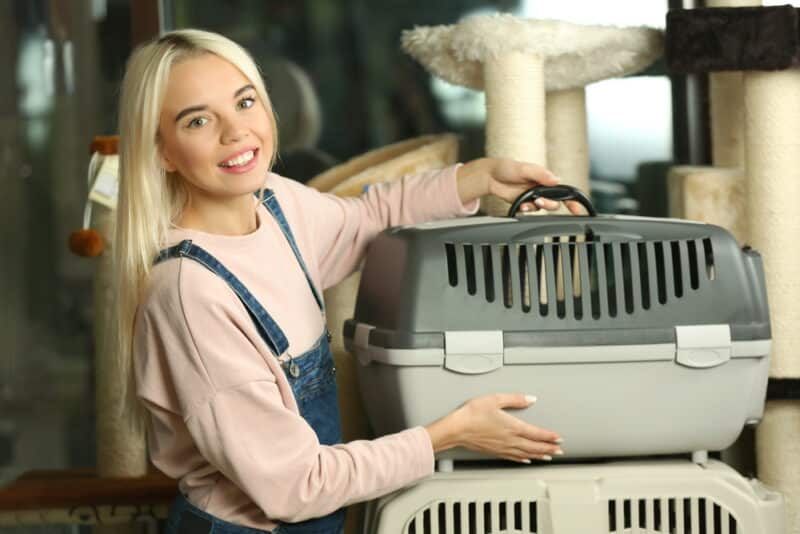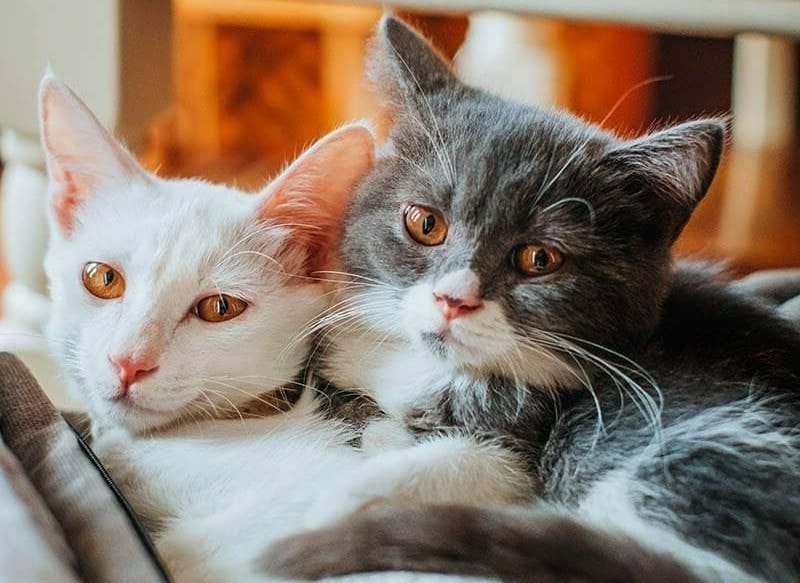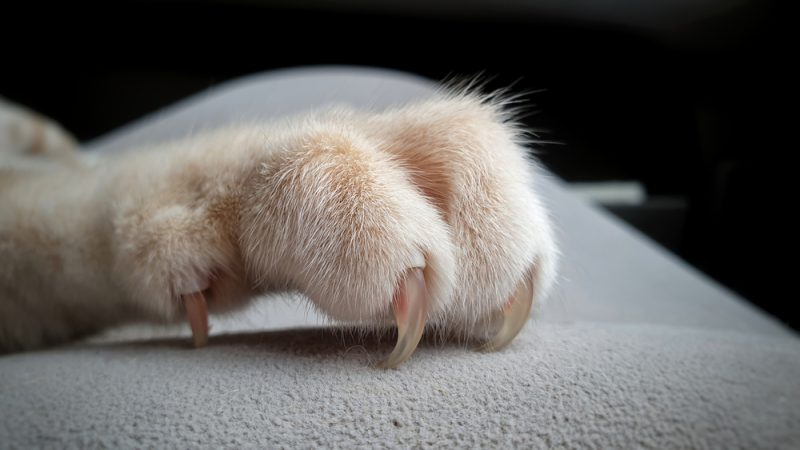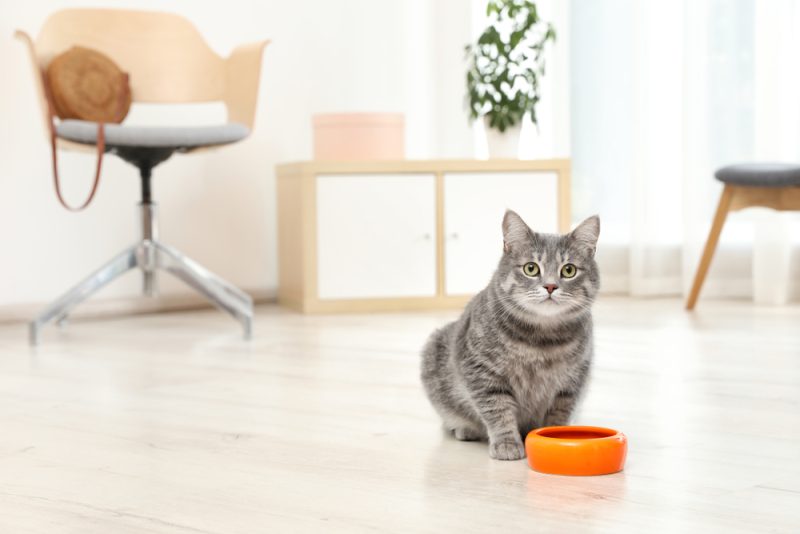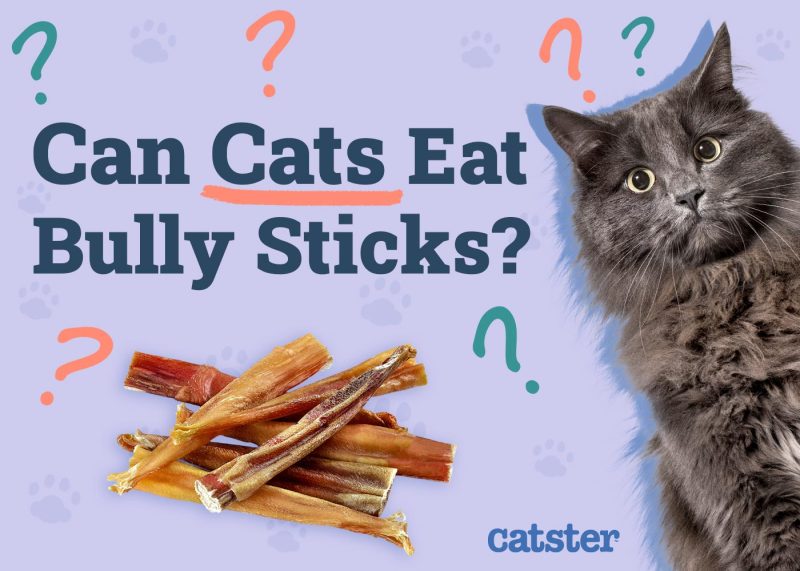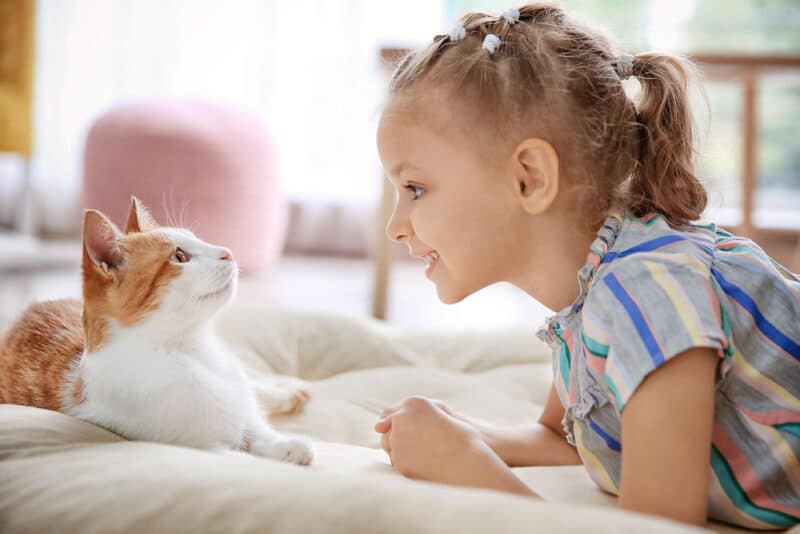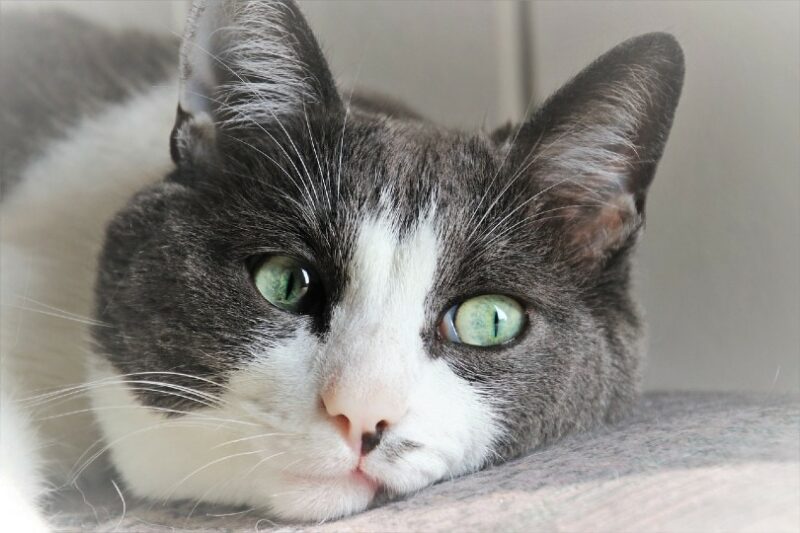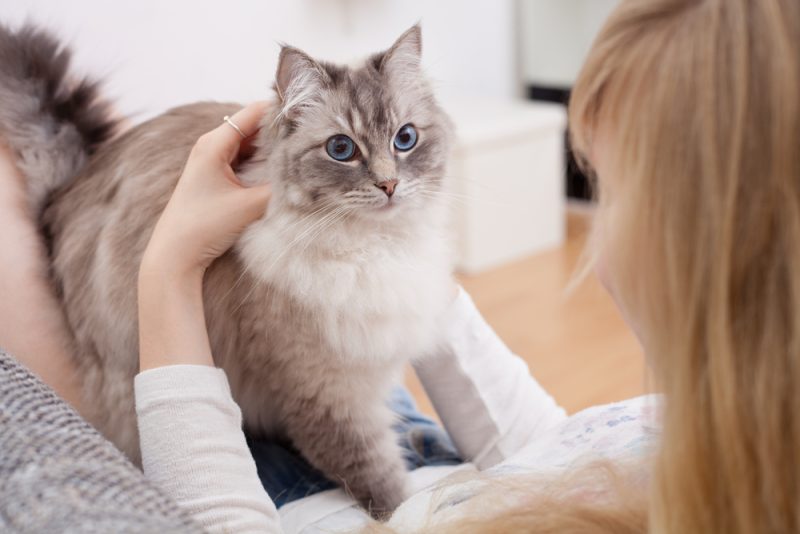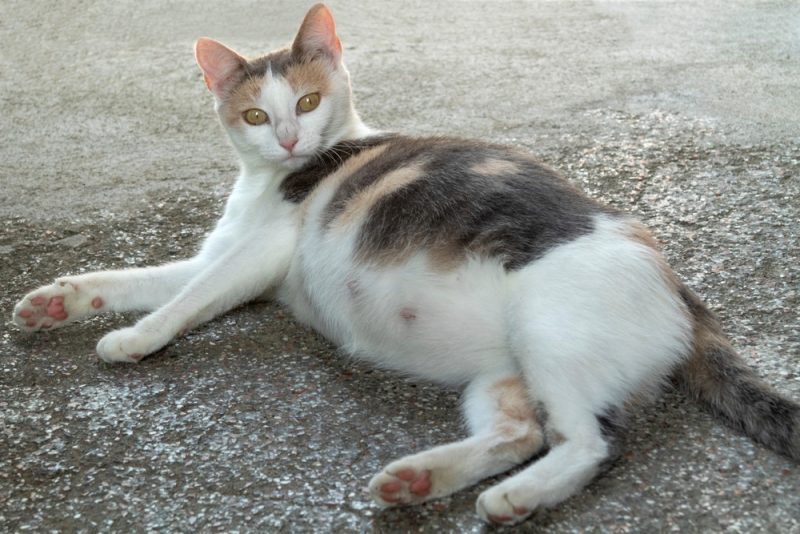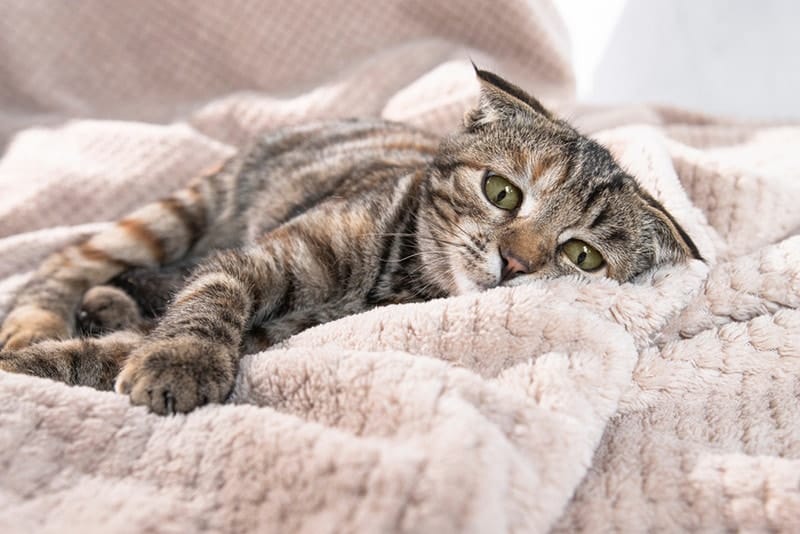In this article
View 3 More +One of the top priorities and responsibilities of cat owners is to keep their beloved cats safe both in and outside of their homes. The safest way to travel with cats is to keep them in a sturdy carrier while moving from one location to the next. There are so many different kinds of carriers, and not all of them are travel safe. However, some of them are, and one sure way that you can determine if a cat carrier is crash-tested and safe for your cat is to see if it has a Center for Pet Safety (CPS) certification.1
CPS sets the standard for safe pet travel products. Here’s what you need to know about this organization and how you and your cat can benefit from its CPS Certified Program.

What Is the Center for Pet Safety?
CPS is a registered 501(c)(3) non-profit organization with a mission to protect the safety of companion animals. It lives out its mission through several practical avenues. First, the organization conducts scientific studies on various pet products to determine if they’re safe for travel and are designed to have the highest chance of survival for pets. These studies also consider reducing the risk of injury, emotional distress, and financial loss for pets and their owners.
What makes CPS a reputable organization is its affiliations with various universities and commitment to scientific research. Its safety standards have been compiled through thorough research and testing. CPS also regularly re-evaluates its policies, procedures, and regulations to ensure it continues to provide fair and impartial testing.
To remain impartial and prevent conflicts of interest, CPS operates as a third-party tester and isn’t affiliated with the pet product industry. It doesn’t endorse any pet products or provide consultations, testing services, or product development services to pet product manufacturers. It also doesn’t accept financial support from manufacturers within the pet product industry.
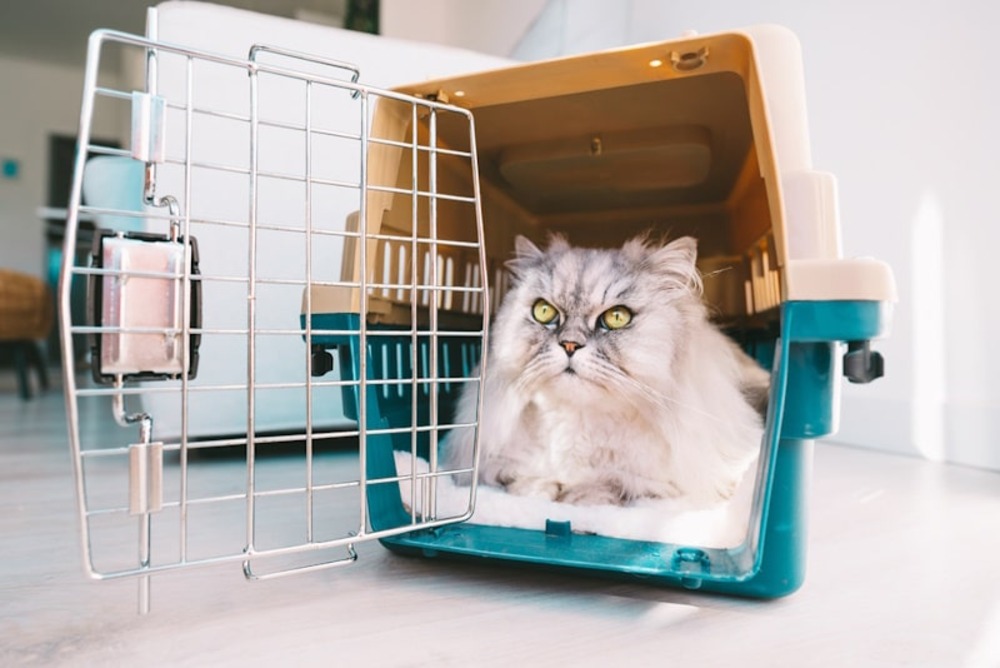
CPS also has an advocacy arm that aims to protect both consumers and their pets. It leads awareness campaigns with the goal of improving consumer and companion animal safety. It also advocates for safety by sharing their research findings and providing education to consumers along with businesses and entities in the pet products industry.
What Is the CPS-Certified Program?
The CPS Certified Program was created to ensure that consumers can easily find the best safety products in the industry. The program currently tests carriers, crates, and safety harnesses. Pet products must undergo rigorous tests, including a crash test, and be deemed as “Independently Crash Test Certified” in order to have a CPS certification. The products’ safety features are also tested in many different settings and travel conditions.
You can easily figure out if a cat’s carrier is CPS Certified. All you have to do is check the product label and look for the CPS Certified logo. It’s hard to miss, as manufacturers are proud to display this badge of honor.

How Does CPS Test Pet Carriers?
While CPS doesn’t disclose all of its testing standards, it does provide a general picture of how it tests products through the CPS Certified Program. The strength and quality of the product’s material are tested, and soft carriers also have their stitching tested.
CPS evaluators use crash test cats with realistic sizes and weights when assessing a pet’s carrier. Some factors they pay attention to are whether the cat’s carrier remains intact upon impact and if it can successfully contain the pet. They’ll also evaluate the severity of injuries a cat would sustain.
CPS ensures that manufacturers consistently release safe products by having the ability to revoke a certification. Pet products can have their CPS certification revoked if the manufacturer is non-compliant with contract terms and if its product no longer meets CPS safety standards.
What Are the Benefits of Getting a CPS-Certified Cat’s Carrier?
The main benefit of getting a CPS Certified Cat’s Carrier is that it has passed rigorous safety tests and is deemed to be among the safest products in the industry. Considering how many different cat’s carriers are out there, it’s surprising to see how short CPS’ list is for certified cat’s carriers. This isn’t because CPS hasn’t tested very many products. In fact, the organization has tested many products1.
Unfortunately, the pet product industry is very unregulated, and some manufacturers will resort to using misleading marketing tactics. For example, many pet carriers will be labeled as “crash tested,” but this doesn’t necessarily mean that they’ve passed a crash test. It can simply mean that they performed a crash test. These manufacturers also often won’t publish their crash test results, and they aren’t required to do so.
Some pet carriers will have labels stating that they’ve passed a crash test. However, even this can be misleading. Manufacturers may only test one size in their line of carriers, and it’s unclear if all the differently sized carriers have been tested. They can also have ambiguous and loose requirements for their safety testing.
CPS has earned consumer trust by remaining 100% independent from the pet product industry. It also re-examines its safety standards and testing procedures and will continue to hold manufacturers accountable after their products have earned a CPS certification. So, you can rest assured that your cat is being placed in the safest carrier when you select a CPS-certified cat carrier.

Conclusion
A CPS-certified product stands out from its competitors because it’s been tested with ethical and thoroughly researched standards and procedures. When using a CPS-certified cat carrier, you can rest assured knowing that it’s one of the safest options for your cat.
Along with testing products, CPS is involved in advocacy and educating both manufacturers and consumers on pet safety. So, the next time you’re shopping for a cat carrier, make sure to look for the CPS Certified label to ensure you’re purchasing the safest product for your precious cat.
Featured Image Credit: Africa Studio, Shutterstock
